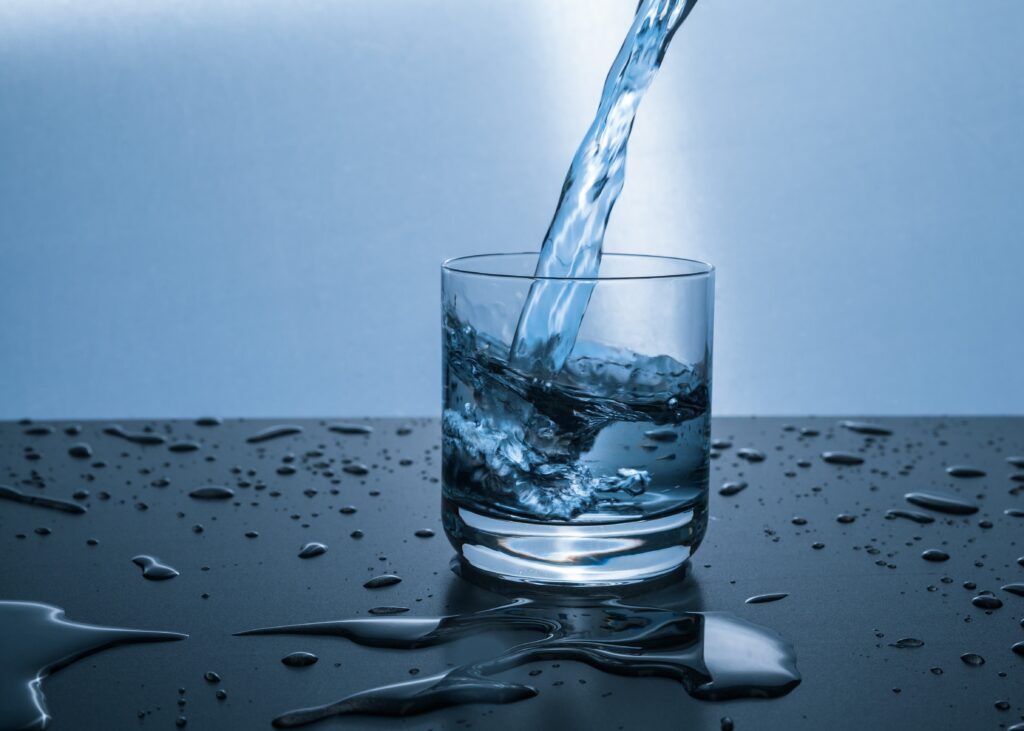Many people are unaware that drinking water can help improve blood sugar levels. By supplying our bodies with fluids, we're helping to reduce the risk of developing diabetes and other conditions related to elevated blood sugar levels.
Not only that, but by hydrating our cells we're also helping to improve overall brain function and memory. If you're looking for a way to improve your blood sugar levels without medication or dietary changes, water is a great option.
Drinking enough water is one of the simple ways to regulate your blood sugar levels and help prevent type 2 diabetes and other related conditions. Here's everything you need to know about the link between water and blood sugar.
How does drinking water help diabetes type 2?
Drinking water is an important part of a healthy diet for people with diabetes type 2. In fact, it is recommended that people with diabetes drink at least 8 glasses of water per day. This is in addition to the other nutrients and fluids that they are already taking to manage their condition
Water helps to keep blood sugar levels stable and can help to reduce the amount of insulin that is needed in order to control blood sugar levels. It also helps to reduce the risk of complications such as kidney damage and heart problems.
In fact, a study published in the journal Diabetic Medicine found that people with diabetes who drank 500ml of water (about 16 ounces) every day had a 25% lower risk of developing diabetic retinopathy (a complication of diabetes that causes damage to the retina) than those who drank less water.
So, if you are looking for ways to improve your diabetes control and overall health, make sure to drink plenty of water. Bear in mind that diabetes can worsen if not addressed through lifestyle changes.
How does water lower blood glucose?
Water can lower blood glucose levels by helping to dilute the glucose in the blood. This can help to prevent hyperglycemia, or abnormally high blood sugar levels. Additionally, it can help to maintain blood sugar levels in the normal range.
Water also plays a role in the digestion of food. When food is broken down in the stomach, water is released. This water is then absorbed into the bloodstream and transported to all parts of the body. When water is present in large quantities, it can help to prevent food from being absorbed into the intestine, which can lead to weight loss. In addition, it can help to flush out toxins and waste products from the body.
Next time you are thirsty, drink some water. It could just be the key to better blood sugar levels and overall health.
The Link Between Water and Hyperglycemia
The link between water and hyperglycemia is not something new. In fact, it has been known for a long time that drinking water helps you stay hydrated and maintain healthy blood sugar levels.
Research shows that hyperglycemia (high blood sugar) can be caused by dehydration, but this does not happen all the time. If you are diabetic or have prediabetes, staying hydrated with enough water in your diet will help keep your glucose levels under control
What is the best way to drink water for blood sugar?
It can be difficult to regulate blood sugar levels without understanding how to drink water for blood sugar. By drinking enough water, you can help to regulate your blood sugar levels and keep them in check. Water is the best source of hydration for the body, and it has been shown to help in regulating blood sugar levels.
When you drink water, it sends a signal to the brain that there is plenty of water available and that it should not start to digest food. This helps to keep blood sugar levels stable and prevents spikes and dips in blood sugar levels.
Additionally, by drinking water before meals, you can help to avoid overeating or binging. By drinking enough water throughout the day, you will not feel thirsty and will be less likely to reach for unhealthy snacks.
How much water should you drink to lower blood sugar?
There is no one-size-fits-all answer to this question, as it depends on a number of factors including your weight, activity level, and dietary preferences.
However, generally speaking, experts recommend drinking about eight glasses of water per day to lower blood sugar levels. This can be achieved by drinking water throughout the day or by drinking it throughout the day and evening.
If you are struggling to drink enough water, adding a water soluble vitamin such as ascorbic acid or chromium to your diet may help.
How can I tell if I am drinking enough water?
When it comes to hydration, it is important to drink enough water every day. The National Institute of Health recommends that women drink approximately 16 ounces of water per day and men drink approximately 26 ounces of water per day. If you are trying to lose weight, it is also important to drink more water. In fact, Women's Health reported that increasing water intake by just 1 cup per day can help you lose up to 2 pounds a week!
While it is easy to forget to drink water, there are a few ways to ensure that you are getting your daily dose. One way is to keep a water bottle with you at all times and drink when you are thirsty. Another way is to monitor your urine levels, as this will indicate how hydrated you are. If your urine is light yellow or pale, then you are drinking enough water, but if it is darker, then you may need to increase your intake.
What are alternatives to drinking water?
There are a few alternatives to drinking water. Natural raw fruit juices, unsweetened tea, processed juice drinks, and sports drinks are all good choices.
Nevertheless, keep in mind that beverages high in fructose, such as sweetened soda, should be avoided as much as possible.
In short, water is still the best choice for hydration, and it shouldn't be overlooked. You should drink it over alternatives as much as you can.
How dehydration affects blood sugar levels and type 2 diabetes management and risk
Dehydration can affect blood sugar levels. When you are dehydrated, your body loses water from the cells and tissues in your body. Not being hydrated causes dehydration in the cells which lower their activity level and ability to function properly. This reduces blood glucose levels making it harder for them to absorb energy from food that is consumed by our bodies
Dehydration causes low blood sugar and may lead to type 2 diabetes. The first thing that you need to do is keep hydrated by drinking water regularly. This will help your body maintain a normal level of fluid in the body.
If you have any concerns about your weight or if you are worried about being dehydrated, make sure that you drink more water as it can be very harmful to people with diabetes and those who have a lot of weight to lose.
3 Takeaways
What are the consequences of low blood sugar levels?
Low blood sugar levels can have a variety of consequences, depending on the severity of the condition. When blood sugar levels are low due to a lack of insulin, it can lead to serious health problems, including coma and even death. Low blood sugar levels can also lead to increased hunger and cravings, decreased energy levels, and difficulty concentrating. In extreme cases, low blood sugar levels can cause seizures, heart problems, and even brain damage.
It is important to get immediate treatment for low blood sugar levels if they are detected because the sooner they are treated, the better the chances are for a successful outcome. If left untreated, low blood sugar levels can lead to long-term health problems. So, be sure to get checked-up regularly and take action if you notice any signs or symptoms of low blood sugar levels.
How can you treat low blood sugar levels?
If you are having trouble balancing your blood sugar levels, you may need to see a doctor. Low blood sugar levels can be caused by a variety of factors, including eating too many carbohydrates, exercising too much, drinking alcohol excessively, or being sick.
When low blood sugar levels are not treated, they can lead to serious health problems, including convulsions, coma, and even death.
If you are experiencing symptoms of low blood sugar levels, the best thing to do is to reach for something sweet. This will help to stabilize your blood sugar levels and prevent them from falling too low. If the symptoms persist, it is important to consult a doctor.
In some cases, medications may be prescribed to help regulate blood sugar levels. You may also consider supplements, herbs, multivitamins, and/or teas.
However, always consult with your doctor before taking any medication, as it may have unforeseen side effects. Natural remedies work the best and are most healthy for the body.
Bottom line
It is important to drink more water if you want to lose weight and stay healthy, as it can help your cells and tissues function properly. Drinking water regularly will help keep blood glucose levels normal, which may reduce the risk of developing type 2 diabetes.


